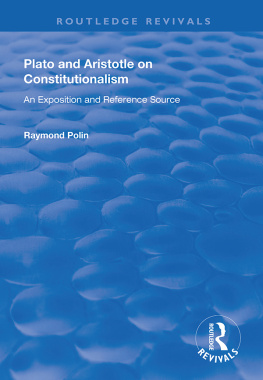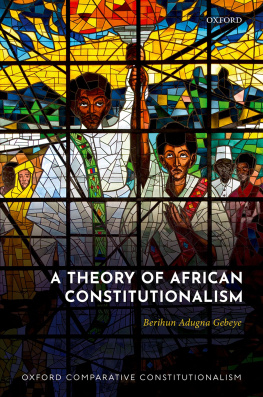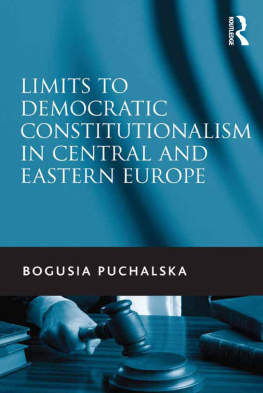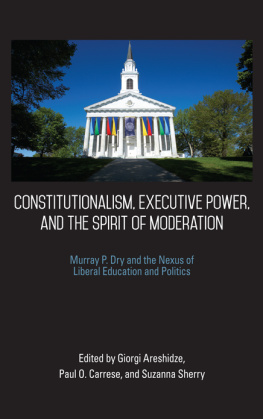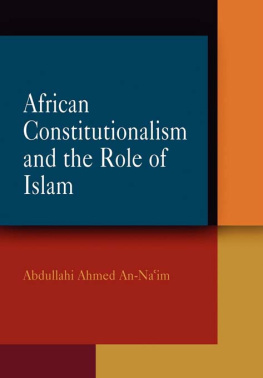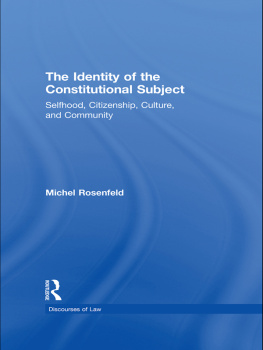Teubner - Constitutional fragments: societal constitutionalism and globalization
Here you can read online Teubner - Constitutional fragments: societal constitutionalism and globalization full text of the book (entire story) in english for free. Download pdf and epub, get meaning, cover and reviews about this ebook. City: Oxford, year: 2014;2012, publisher: Oxford University Press, genre: Politics. Description of the work, (preface) as well as reviews are available. Best literature library LitArk.com created for fans of good reading and offers a wide selection of genres:
Romance novel
Science fiction
Adventure
Detective
Science
History
Home and family
Prose
Art
Politics
Computer
Non-fiction
Religion
Business
Children
Humor
Choose a favorite category and find really read worthwhile books. Enjoy immersion in the world of imagination, feel the emotions of the characters or learn something new for yourself, make an fascinating discovery.

Constitutional fragments: societal constitutionalism and globalization: summary, description and annotation
We offer to read an annotation, description, summary or preface (depends on what the author of the book "Constitutional fragments: societal constitutionalism and globalization" wrote himself). If you haven't found the necessary information about the book — write in the comments, we will try to find it.
Teubner: author's other books
Who wrote Constitutional fragments: societal constitutionalism and globalization? Find out the surname, the name of the author of the book and a list of all author's works by series.
Constitutional fragments: societal constitutionalism and globalization — read online for free the complete book (whole text) full work
Below is the text of the book, divided by pages. System saving the place of the last page read, allows you to conveniently read the book "Constitutional fragments: societal constitutionalism and globalization" online for free, without having to search again every time where you left off. Put a bookmark, and you can go to the page where you finished reading at any time.
Font size:
Interval:
Bookmark:
Constitutional Fragments
OXFORD CONSTITUTIONAL THEORY
Series editors:
Martin Loughlin, John P. McCormick, and Neil Walker
One consequence of the increase in interest in constitutions and constitutional law in recent years is a growing innovative literature in constitutional theory. The aim of Oxford Constitutional Theory is to provide a showcase for the best of these theoretical reflections and a forum for further innovation in the field.
The new series will seek to establish itself as the primary point of reference for scholarly work in the subject by commissioning different types of study. The majority of the works published in the series will be monographs that advance new understandings of the subject. Well-conceived edited collections that bring a variety of perspectives and disciplinary approaches to bear on specific themes in constitutional thought will also be included. Further, in recognition of the fact that there is a great deal of pioneering literature originally written in languages other than English and with regard to non-anglophone constitutional traditions, the series will also seek to publish English translations of leading monographs in constitutional theory.
Societal Constitutionalism
and Globalization
Gunther Teubner
Translated by
Gareth Norbury



Great Clarendon Street, Oxford OX2 6DP
United Kingdom
Oxford University Press is a department of the University of Oxford.
It furthers the Universitys objective of excellence in research, scholarship,
and education by publishing worldwide. Oxford is a registered trade mark of
Oxford University Press in the UK and in certain other countries
G. Teubner, 2012
The moral rights of the author have been asserted
First published 2012
All rights reserved. No part of this publication may be reproduced, stored in
a retrieval system, or transmitted, in any form or by any means, without the
prior permission in writing of Oxford University Press, or as expressly permitted
by law, by licence or under terms agreed with the appropriate reprographics
rights organization. Enquiries concerning reproduction outside the scope of the
above should be sent to the Rights Department, Oxford University Press, at the
address above
You must not circulate this work in any other form
and you must impose this same condition on any acquirer
Crown copyright material is reproduced under Class Licence
Number C01P0000148 with the permission of OPSI
and the Queens Printer for Scotland
British Library Cataloguing in Publication Data
Data available
Library of Congress Cataloging in Publication Data
Library of Congress Control Number: 2012931701
ISBN 9780-199644674
Typeset by Newgen Imaging Systems (P) Ltd, Chennai, India
Printed in Great Britain on acid-free paper by
CPI Group (UK) Ltd, Croydon, CR0 4YY
let thy company bind thee hand and foot to the mastUlysses followed Circes advice and was able to enjoy the sirenes singing without falling for their deadly temptation. Freedom through self-restraint is Ulysses constitutional message which has been echoed by political constitutions once they began to constrain the power of the nation state. In this book the message is applied to constitutions beyond the nation state, to the constitutions of transnational regimes which govern more and more our daily lives. Their expansive tendencies are in urgent need of being constrained by constitutional rules.
This book grew out of the lively debates of the constitutionalists, a discussion group at the Wissenschaftskolleg zu Berlin. Petra Dobner, Dieter Grimm, Martin Loughlin, Fritz Scharpf, Alexander Somek, and Rainer Wahl had such powerful objections to the concept of constitutionalism beyond the nation state that I thought I needed to write a book to deal with them adequately. I benefited from the institutional support and the intellectual climate of the Exzellenzcluster Normative Ordnungen in Frankfurt, the Hague Institute of International Law, and the International University College in Turin. In preparing this book I co-operated closely with Poul Kjaer, whose forthcoming monograph on The Structural Transformation of Democracy: Elements of a Theory of Transnational Constitutionalism develops complementary analyses on transnational societal constitutionalism from the political sciences perspective. Anna Beckers and Soo-Hyun Oh supported the whole process from the beginning with substantive assistance and constructive critique. Last but not least, I should mention the discussions of the seminar on private law theory which I held in Frankfurt for several years together with Rudolf Wiethlter. His ideas on Rechtsverfassungsrecht inspired me more than the text can tell.
APEC | Asia Pacific Economic Co-operation |
CBD | Convention on Biological Diversity |
FAO | Food and Agriculture Organization of the United Nations |
ICC | International Chamber of Commerce |
ICJ | International Court of Justice |
ICSD | International Center for the Settlement of Investment Disputes |
ICTY | International Criminal Tribunal for the former Yugoslavia |
IGC | Intergovernmental Committee on Intellectual Property and Genetic Resources, Traditional Knowledge and Folklore |
ILO | International Labour Organization |
IPL | international private law |
MERCOSUR | Mercado Comn del Cono Sur |
NAFTA | North American Free Trade Agreement |
UNEP | United Nations Environment Programme |
WHO | World Health Organization |
WIPO | World Intellectual Property Organization |
WTO | World Trade Organization |
The New Constitutional Question
During the last few years, a series of public scandals has raised the new constitutional question.state in transnational political processes, and at the same time outside the institutionalized political sector, in the private sectors of global society.
These scandals have sparked a debate that diagnoses a crisis of modern constitutions, with transnationalization and privatization of the political to blame. Arguments rage about a transnational constitutionalism, whose statuswhether constitutional doctrine, sociological theory, political manifesto, or social utopiaremains unclear. Broadly speaking, the terms of the debate are as follows. One side heralds the decline of constitutionalism. Its historically fully-developed form, so the argument goes, was taken in the political constitutions of the nation state. However, its foundations were being eroded, on the one hand by European integration and the emergence of transnational regimes and, on the other, by the transfer of political power to private collective actors. Alternative forms to national constitutions cannot be found in the transnational space. They are even saidbecause transnational politics suffers from chronic deficits, for example the non-existence of a demos, cultural homogeneity, political founding myths, a public sphere, political partiesto be structurally impossible. If this double crisis of constitutionalism can be counteracted at all, then it will be at most through re-nationalization and re-politicization, that is, constitutional institutions of the nation state (constitutional courts, parliaments, the public sphere) would need to be fully restored.
Next pageFont size:
Interval:
Bookmark:
Similar books «Constitutional fragments: societal constitutionalism and globalization»
Look at similar books to Constitutional fragments: societal constitutionalism and globalization. We have selected literature similar in name and meaning in the hope of providing readers with more options to find new, interesting, not yet read works.
Discussion, reviews of the book Constitutional fragments: societal constitutionalism and globalization and just readers' own opinions. Leave your comments, write what you think about the work, its meaning or the main characters. Specify what exactly you liked and what you didn't like, and why you think so.

